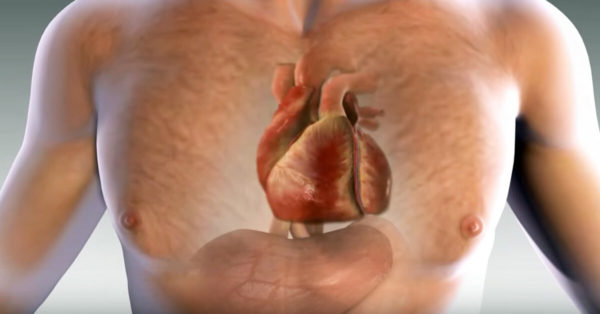Heart attacks seem to be prevailing in the nation as one of the most common injuries. It is said that your body will send you warning signs six months before a heart attack. Are you experiencing these symptoms? If so, you might need to check in with your physician.
Heart disease is the number one leading cause of death in the United States. It is a range of conditions that affect your heart. These things include Coronary Artery Disease, Arrhythmias, and congenital heart defects. There are a few ways to increase your heart health like eating a better diet, exercise, iron supplements, and omega-3s. But in the meantime, be sure to lookout for these signs, as your body could be warning you of a heart attack.
Technically a heart attack happens when the flow of oxygen-rich blood to a section of heart muscle suddenly becomes blocked, and the heart begins to die due to the lack of oxygen. If the blood isn’t restored quickly, that section of the heart muscle begins to die. If immediate help is not sought, the entire heart can die – causing death.
One of the premature signs of a heart attack is extreme fatigue. Fatigue is normal after physical activities or a stressful day, but if you experience constant fatigue you may need to check into your heart health. If you have a sufficient amount of sleep, have eaten, and haven’t done a whole lot, and are experiencing fatigue, it is not natural. Another sign of premature heart attack is sleep disturbances. This can be a way of your subconscious letting you know things are not right. These disturbances can consist of having to get up and use the restroom frequently, get a drink of water, or are simply woken for no reason at all, See a doctor in concern of your heart health.
Shortness of breath can be a key indicator of heart issues. If your heart is not receiving a sufficient amount of oxygen, it can make you feel short of breath. Another premature indicator of a heart attack is indigestion; constantly having a rumbly stomach is not normal. However, if you have consumed spicy or irritating foods, indigestion is normal.
The last two symptoms you might experience six months before you have a heart attack are increased anxiety and your arms feel weak or heavy. This happens because when your heart is not getting enough oxygen, it sends out impulses to the spine. All the nerves that run from the heart to the spine branch off into the arms and could cause a sensation of pain. If one of your arms goes numb, you might be in the process of having a heart attack! Watch out for these signs and symptoms. Remember to take care of your heart! We can’t live without it.
